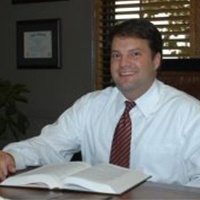 Quinton Misdemeanor Lawyers, Alabama
Quinton Misdemeanor Lawyers, Alabama
Not enough matches for Quinton Misdemeanor lawyer.
Below are all Quinton Criminal lawyers.
Sponsored Lawyers
1-10 of 36 matches
Divorce & Family Law, Wills & Probate, Criminal
Marvin Simpson is a practicing lawyer in the state of Alabama. Attorney Simpson received his J.D. from the Birmingham School of Law.
(more)Accident & Injury, Criminal, Divorce & Family Law, Estate, Lawsuit & Dispute
Julian Hendrix is a practicing lawyer in the state of Alabama. Attorney Hendrix received his J.D. from the Birmingham School of Law.
(more)Criminal, Accident & Injury, Business, Divorce & Family Law
Jay Tidwell is committed to excellence in his practice and service to his clients. He practices in all state district and circuit courts and federal courts in Alabama. His civil trial practice focuses on personal injury, including auto accidents, trucking accidents and construction accidents; wrongful death, worker’s compensation, and products liability. He provides significant counsel to construction companies, homeowners, and contractors. He also serves businesses in the area of corporate formation, contracts, and litigation.
(more)Criminal, Divorce & Family Law, Accident & Injury
Michael Russ is a practicing lawyer in the state of Alabama. Attorney Russ received his J.D. from the Birmingham School of Law in 2017. The Premier Law Firm is devoted to assisting people with their legal needs and providing premier service to our clients in an influential manner. We are more than just a firm, we are here to help.
(more)Accident & Injury, Personal Injury, Traffic, Criminal, DUI-DWI
Simms & Associates is widely regarded as one of the top personal injury law firms in the State of Alabama. The firm was founded in 1999 by lead attorney Derek Simms after gaining years of insight as an insurance industry insider. Simms & Associates will provide you with firsthand knowledge of how auto insurance companies operate. Insurers have specific methods of evaluating cases to determine their worth. Some insurance companies fear litigation – others do not. Simms & Associates can help guide you through the complex legal landscape to arrive at the best possible outcome in your personal injury case. Even if you have received a letter from an insurance company denying your claim on the basis of “contributory negligence,” Simms & Associates may be able to recover money damages on your behalf. Simms & Associates has also earned a reputation as an aggressive criminal defense firm that tries bench and jury trials in state and federal courts throughout Alabama. Simms & Associates is well-known for fighting hard and going to trial if needed to achieve the client's goals. Success in criminal defense requires persistence in the discovery phase and a detail-oriented approach. Simms & Associates works diligently to protect the rights of clients. The firm handles a wide range of criminal cases, including DUI and drug offenses The lawyers at Simms & Associates take personal pride in achieving the best possible outcome in the cases they handle. Their track record speaks for itself, with countless dismissals and jury acquittals.
(more)








